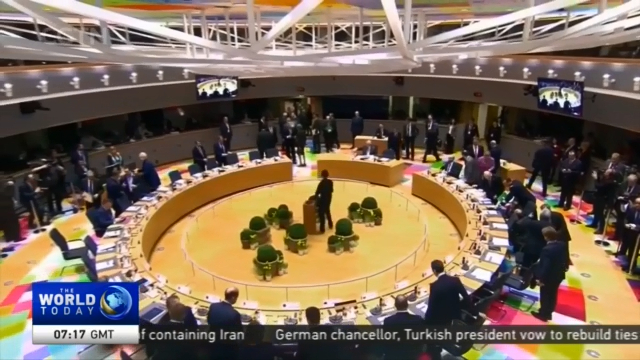
15:43, 29-Sep-2018
Brexit Challenges: Former foreign secretary against Theresa May's Brexit plans
Updated
15:05, 02-Oct-2018
02:56

A new row has broken out in the ranks of the UK's ruling Conservatives over the terms of the country's departure from the European Union. Former Foreign Secretary Boris Johnson has launched a blistering attack on UK Prime Minister Theresa May's Brexit plans, calling them "a moral and intellectual humiliation" for the UK. Our correspondent Richard Bestic has more.
In the UK, it's a cliché to say the clock is ticking on Brexit, but, guess what, it really is. And with six months to go before Britain's escorted to the EU exit, there remains little in the way of clarity. In New York this week, UK Prime Minister Theresa May said she wanted a deal, but was preparing for an epic fail.
THERESA MAY UK PRIME MINISTER "And my job as government is to ensure that we have, that we have put in place the steps that make sure that if it is that worst-case scenario, actually we will still make a success of it."
Trouble is, in Brussels EU negotiators have rejected May's Brexit plan as unworkable. As indeed have around 80 members of her own Party in Parliament. The political arithmetic twisted further when you add into this week's mix a Labour opposition gunning for a General Election.
JEREMY CORBYN LABOUR OPPOSITION LEADER "If parliament votes down a Tory deal or the government fails to reach any deal at all, we would press for a general election."
If not a General Election no deal would likely see demands for a second referendum – including the option to remain becoming significantly louder. After all, during the referendum campaign two years ago voters were told Brexit would be the easiest thing in the world and there'd be loads of money to be saved. It hasn't worked out that way and from the European mainland this week; they still called for clarity.
ANGELA MERKEL GERMAN CHANCELLOR "What is important is what Britain really wants, the discussion there is not so clear."
As far as most other European Union leaders are concerned, the UK's asking the impossible – the best bits of the EU and its marketplace of 500 million people, without the EU's rigid rules. While there's six months to go before Britain officially leaves, the reality is that legally binding decisions must be made within the next six to eight weeks.
RICHARD BESTIC LONDON "The Prime Minister believes that's not impossible but it is a pretty tight deadline, particularly as there is no agreement here in parliament among the parliamentary ranks of the Prime Minister's party, or indeed around the cabinet table. RB, CGTN, London."

SITEMAP
Copyright © 2018 CGTN. Beijing ICP prepared NO.16065310-3
Copyright © 2018 CGTN. Beijing ICP prepared NO.16065310-3